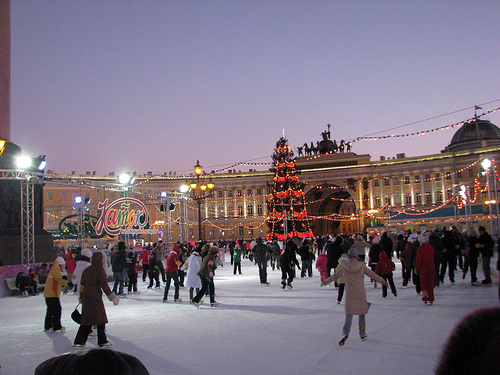Why do people anticipate Winter holidays? Because this is the time to switch off an alarm clock and sleep longer. This is a time for lazy morning coffee and the quiet satisfaction of taking your time. Christmas is a good time for relaxation. Some countries limit winter vacations to a few days, right between Christmas and the New Year, and return to working routine on January 2ndat the latest. In Russia, the New Year holidays officially last from January 1st to January 10th, however, unofficially, many offices go on vacations during the last week of December. Russians are quite serious about holidays.
There are at least five different words in the Russian language for non-working days. The word “праздники” (plural form of “праздник”) is for holidays, for days when people celebrate something significant. The New Year holidays in Russian are “новогодние праздники”. There is another set of holidays called “майские праздники” (May holidays) that starts on May 1st (a Labour Day, a tradition inherited from the Soviet Union) and lasts until Victory Day (the end of World War II).
The word “выходные” (plural form of “выходной”) just means non-working days with no specific reason indicated. This word may be used for holidays as well as for a weekend (Saturdays and Sundays are normally non-working days in Russia).
The word “каникулы” (vacations) was initially used for academic vacations only. However, for last ten years, the usage of this word extended to non-academic areas as well, thus, you may find news headlines like this “ Во что обойдутся казне Рождественские каникулы” (How much Christmas vacations will cost to the state budget). Outside academic life, the word “каникулы” means quite a long period of non-working days.
Besides official holidays and weekends, every employee has a right to a vacation, a period of time that one is to be away from his/her primary job, while maintaining employment. In Russian, the word for (paid or unpaid) time off is “отпуск”. Summertime is often called “время отпусков” (vacation time) because many clerks prefer to schedule their vacations for July and August.
Finally, the last word that also means a day off is “отгул”. Sometimes, an employee may be rewarded with a day-off for working additional hours. In this case, the employee may take a day-off on any day of the working week. Or, one may need an extra day off for some personal reasons and, in order to get this day-off, he or she works more hours or perform some additional tasks.
Happy Winter Holidays and Prosperous 2011 Year!
Photo by Eugene Kotlyarov

